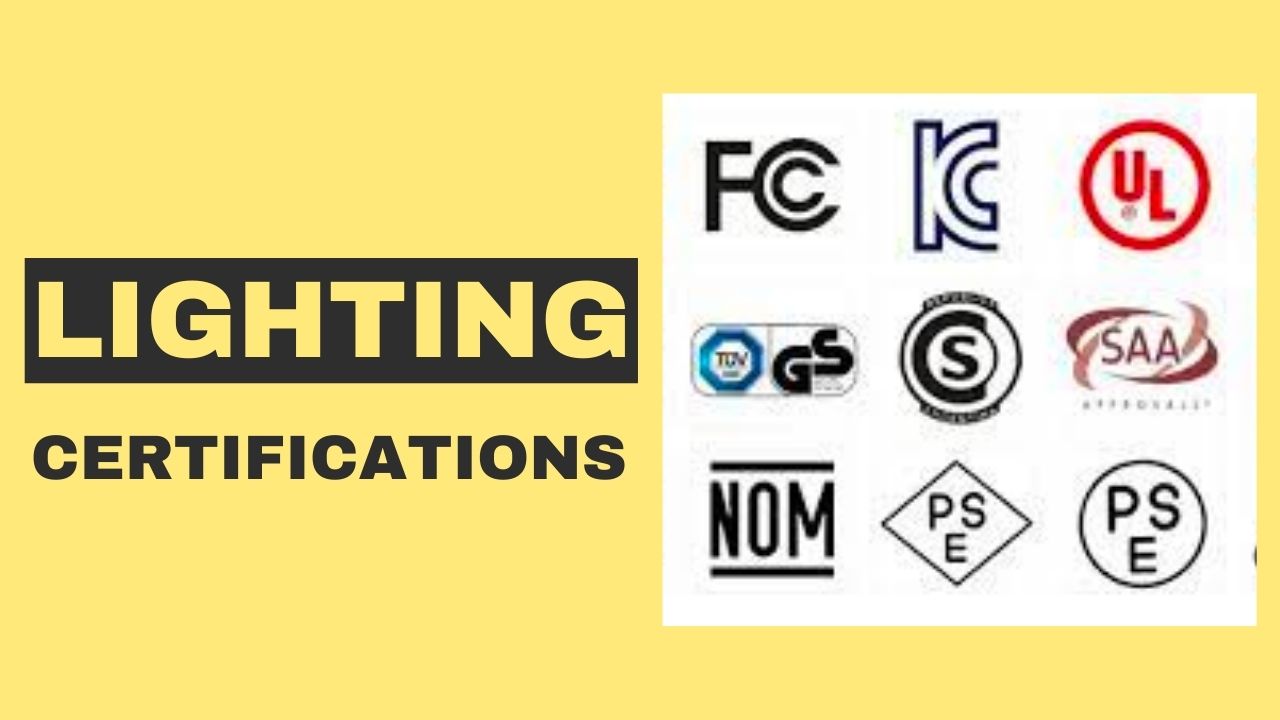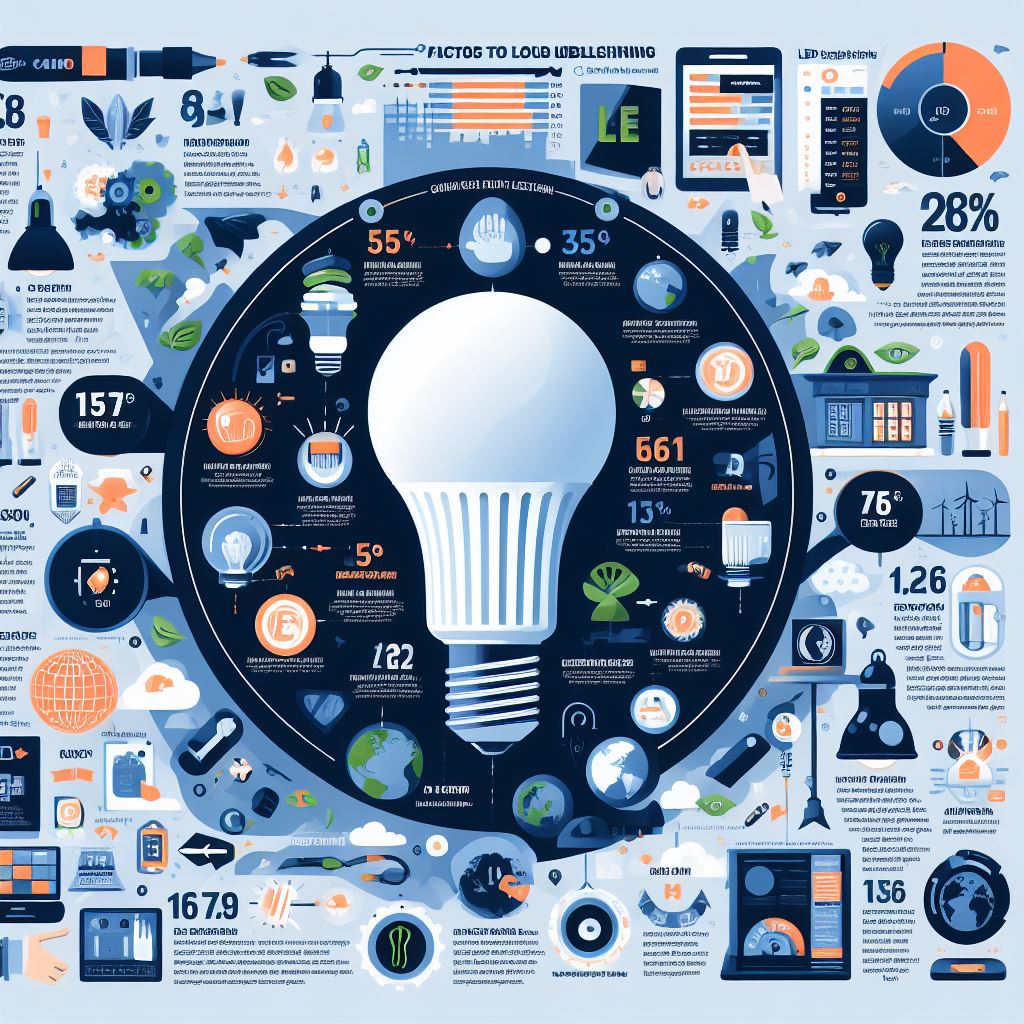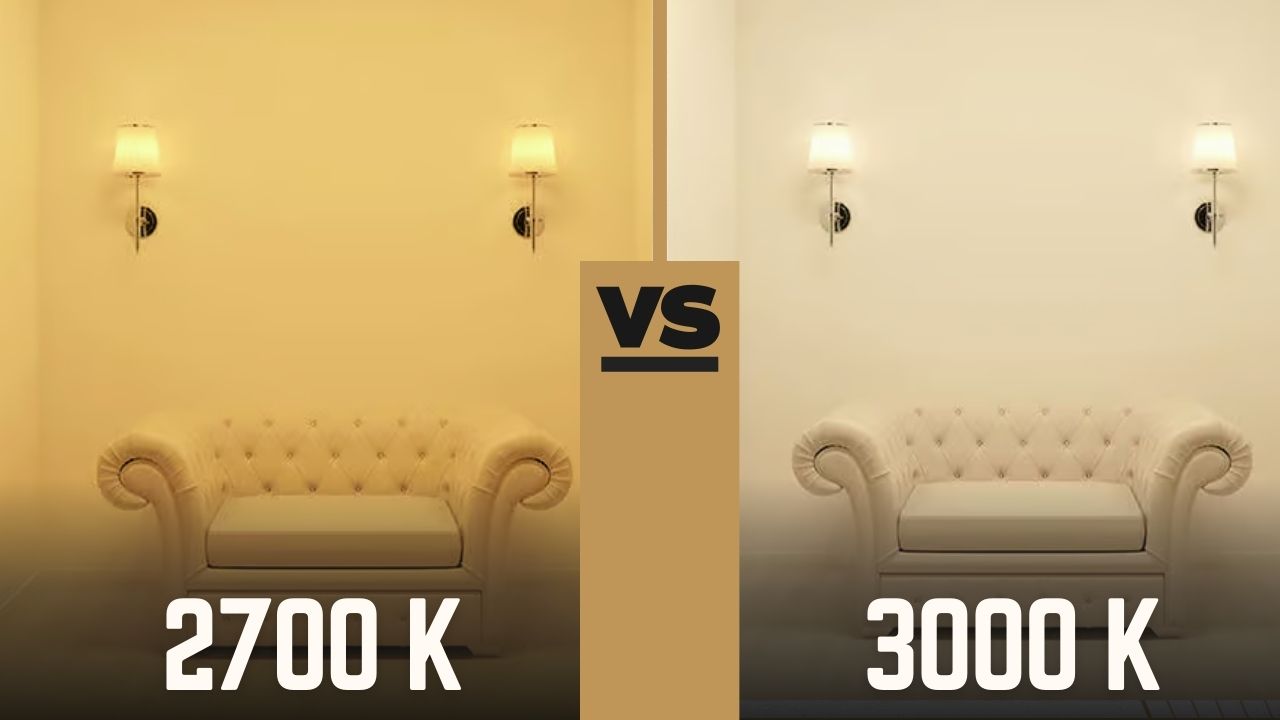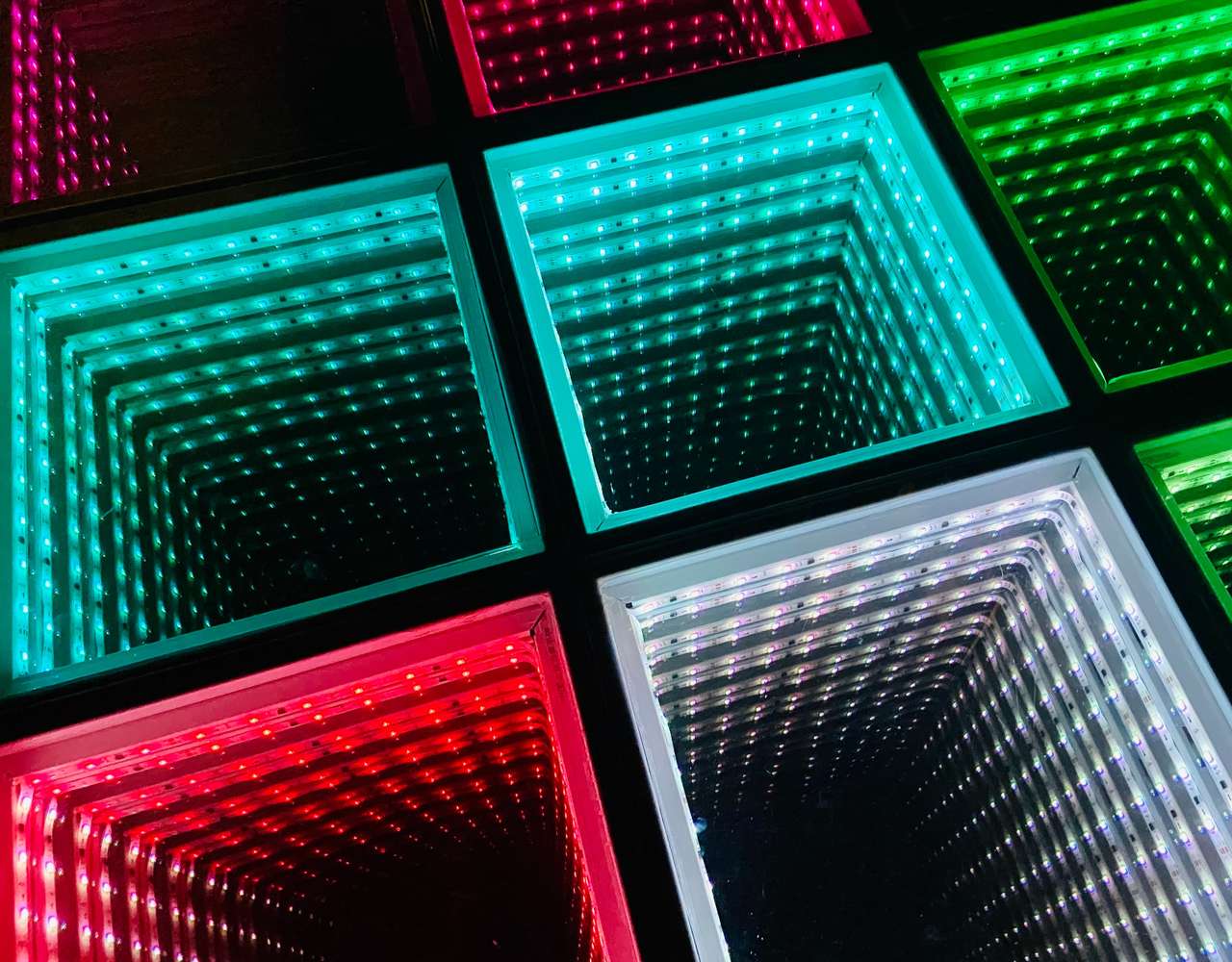Lighting plays a fundamental role in our daily lives, shaping our surroundings and enhancing our experiences. However, the field of lighting design and engineering is not simply about illuminating spaces; it requires a deep understanding of the science, technology, and artistic aspects that contribute to creating exceptional lighting environments. Lighting certifications have emerged as a means to recognize professionals who possess the knowledge and skills necessary to excel in this dynamic industry.
Importance of Lighting Certifications
Lighting certifications are credentials awarded to individuals who have demonstrated proficiency in various aspects of lighting design, engineering, or related fields. These certifications serve as tangible evidence of an individual’s qualifications, validating their expertise and dedication to their craft.
By obtaining a lighting certification, professionals can distinguish themselves from their peers and demonstrate their commitment to staying current with industry standards and best practices. The importance of lighting certifications extends beyond personal recognition; they also serve as an invaluable tool for employers when seeking out qualified professionals.
With the rapid growth of the lighting industry globally, employers face an increasing challenge in identifying individuals with the right skill set for their projects. Lighting certifications provide employers with a reliable benchmark for assessing candidates’ qualifications during recruitment processes.
Overview of the Lighting Industry and Its Rapid Growth
The lighting industry has witnessed remarkable growth over recent years due to advancements in technology and increasing awareness regarding energy efficiency and sustainability. From residential spaces to commercial buildings, outdoor environments to entertainment venues, there is an ever-growing demand for innovative lighting solutions that not only fulfill functional requirements but also enhance aesthetics. The emergence of LED (Light Emitting Diode) technology has significantly transformed the landscape of the lighting industry.
LEDs offer numerous benefits such as energy efficiency, long lifespan, reduced maintenance costs, versatility in color rendering capabilities, and compatibility with smart control systems. These advantages have driven the widespread adoption of LED lighting solutions across various sectors, further fueling the industry’s expansion.
Furthermore, the integration of lighting with emerging technologies like Internet of Things (IoT) and Artificial Intelligence (AI) has opened up new possibilities in terms of smart lighting systems, personalized experiences, and data-driven decision-making. This convergence of lighting and technology has propelled the industry forward, creating exciting opportunities for professionals to explore and innovate.
Purpose of This Outline: To Provide a Comprehensive Guide to Lighting Certifications
The purpose of this article is to serve as a comprehensive guide for individuals interested in pursuing lighting certifications or seeking to deepen their knowledge about different certification programs available. Within this outline, we will explore both general lighting certifications that cover a broad range of lighting principles and specialized certifications focusing on specific aspects such as architectural design or sustainable practices. By delving into each certification program’s requirements, eligibility criteria, examination formats, topics covered, and career benefits, readers will gain valuable insights into which certification aligns best with their professional goals.
Moreover, we will touch upon niche subtopics within the field like residential lighting certification programs to provide a well-rounded understanding of the various options available. Whether you are an aspiring lighting professional looking to kickstart your career or an experienced practitioner aiming to expand your expertise, this article aims to equip you with the necessary information to make informed decisions about pursuing lighting certifications that can propel your success in this ever-evolving industry.
General Lighting Certifications
| Certification | Organization | Level | Requirements | Benefits |
|---|---|---|---|---|
| Lighting Designer | Illuminating Engineering Society of North America (IESNA) | Associate | Bachelor’s degree in lighting design or related field, and 3 years of experience in lighting design | Enhances credibility and marketability, opens up new career opportunities, and allows for professional development |
| Certified Lighting Efficiency Specialist (CLES) | National Electrical Manufacturers Association (NEMA) | Associate | Bachelor’s degree in electrical engineering or related field, or 4 years of experience in lighting design or related field | Demonstrates knowledge of lighting efficiency and energy savings, enhances job opportunities, and increases marketability |
| Certified Lighting Technician (CLT) | International Association of Lighting Professionals (IALD) | Entry-level | High school diploma, or equivalent, and 2 years of experience in lighting installation or maintenance | Demonstrates basic knowledge of lighting principles and practices, enhances job opportunities, and increases marketability |
| Certified Lighting Programmer (CLP) | IALD | Intermediate | Bachelor’s degree in lighting design or related field, and 3 years of experience in lighting programming or related field | Demonstrates advanced knowledge of lighting programming techniques and software, enhances job opportunities, and increases marketability |
| Certified Lighting Inspector (CLI) | National Fire Protection Association (NFPA) | Entry-level | High school diploma, or equivalent, and 2 years of experience in lighting inspection or related field | Demonstrates knowledge of lighting codes and standards, enhances job opportunities, and increases marketability |
Certified Lighting Professional (CLC)
The Certified Lighting Professional (CLC) certification, offered by the National Council on Qualifications for the Lighting Professions (NCQLP), is a highly regarded credential in the lighting industry. This certification demonstrates a professional’s expertise and commitment to excellence in lighting design, installation, and energy efficiency.
To be eligible for CLC, candidates must hold a bachelor’s degree in an approved field or have equivalent work experience. The NCQLP carefully evaluates applicants’ qualifications to ensure they meet the necessary requirements.
This helps maintain the credibility and high standards associated with CLC certification. The CLC exam is rigorous and comprehensive, covering various aspects of lighting principles, including light sources, luminaire types, controls, energy codes, and photometry.
The exam consists of multiple-choice questions designed to evaluate candidates’ knowledge and understanding of these topics. It tests not only theoretical knowledge but also practical application.
Obtaining the CLC certification opens up numerous career opportunities for professionals in the lighting industry. With this esteemed credential, individuals can pursue advanced positions like lighting designers or consultants.
They gain a competitive edge in securing projects that require specialized knowledge in lighting design and energy-efficient solutions. Furthermore, being a CLC-certified professional enhances credibility among clients and peers alike.
Lighting Certified (LC)
The Lighting Certified (LC) designation is provided by the Illuminating Engineering Society (IES), an organization dedicated to promoting excellence in lighting design and illumination engineering. This certification serves as an important benchmark within the field as it validates expertise across various aspects of lighting. To become LC certified, professionals must demonstrate their eligibility through specific prerequisites set by IES.
These prerequisites typically include educational background, work experience related to lighting, and professional references. Once eligibility is established, candidates can apply for the LC exam.
The LC exam covers a diverse range of lighting topics, such as lighting design principles, lighting controls, daylighting, energy management, and associated engineering concepts. The exam format typically consists of multiple-choice questions and may include visual assessments to evaluate candidates’ ability to analyze lighting scenarios and propose appropriate solutions.
The advantages of obtaining the LC certification are manifold. For professionals seeking career advancement in the lighting industry, this designation enhances their marketability by showcasing their comprehensive understanding of lighting practices.
Employers value LC-certified individuals for their expertise in designing energy-efficient lighting systems that meet aesthetic requirements while adhering to industry standards. This credential also offers networking opportunities within the IES community and access to ongoing education through IES events and resources.
Specialized Lighting Certifications
Lighting Design Certification (LDC)
Shining a Light on Architectural Brilliance
The International Association of Lighting Designers (IALD) offers the prestigious Lighting Design Certification (LDC) to professionals seeking to specialize in architectural lighting design. This certification focuses on equipping designers with a comprehensive understanding of the principles and techniques behind creating captivating lighting solutions for architectural spaces. As lighting continues to play a crucial role in enhancing the aesthetic appeal and functionality of buildings, obtaining an LDC serves as a testament to one’s expertise in this specialized field.
Exam Structure, Content, and Evaluation Process
To earn the esteemed Lighting Design Certification, candidates must undergo a rigorous evaluation process that demonstrates their proficiency in various aspects of architectural lighting design. The examination is divided into three distinct components: an assessment of the candidate’s design portfolio, a comprehensive written examination, and an oral interview. The portfolio assessment enables candidates to showcase their previous projects and demonstrate their ability to apply theoretical concepts to practical settings.
This component evaluates factors such as creativity, innovation, technical knowledge, and attention to detail. It serves as tangible evidence of one’s capabilities and acts as an essential starting point for evaluating eligibility for the remaining stages.
The written examination delves deeper into theoretical knowledge encompassing topics such as lighting calculations, light distribution techniques, color theory application, fixture selection considerations, energy efficiency standards, and project management principles specific to architectural lighting design. This segment ensures that candidates possess a solid foundation in both theoretical concepts and practical application within this specialized discipline.
Successful candidates are invited for an oral interview conducted by established professionals within the field of architectural lighting design. This interactive session allows assessors to gauge each candidate’s communication skills, problem-solving abilities under pressure or time constraints when faced with real-life scenarios typically encountered in projects.
LEED Accredited Professional with Specialty in Lighting (LEED AP BD+C: L)
Illuminating the Path to Sustainable Design
In an era where sustainable building practices are becoming increasingly important, the LEED Accredited Professional with a Specialty in Lighting (LEED AP BD+C: L) certification offers professionals an opportunity to contribute significantly to environmentally conscious design. The Leadership in Energy and Environmental Design (LEED) certification system, developed by the U.S. Green Building Council, sets the standard for sustainable building practices worldwide. By specializing in lighting within this framework, professionals can demonstrate their commitment to reducing energy consumption and promoting environmentally responsible design.
Explanation of LEED Certification System
The LEED certification system provides a comprehensive rating system for evaluating the environmental performance of buildings across various categories such as energy efficiency, water conservation, materials selection, indoor environmental quality, and sustainable site development. It serves as a globally recognized benchmark for sustainability and guides professionals in designing buildings that minimize their environmental impact while maximizing occupant comfort and well-being.
LEED AP BD+C: L Specialization Requirements
To attain the LEED AP BD+C: L specialization, candidates must first achieve LEED Green Associate accreditation by passing a foundational exam that covers fundamental principles of green building. Once this prerequisite is met, candidates can pursue the specialty designation by demonstrating proficiency specifically in lighting aspects related to building design and construction (BD+C).
This specialization involves understanding lighting systems’ performance metrics based on energy efficiency standards like ENERGY STAR and ASHRAE 90.1 guidelines. Candidates must also exhibit expertise in designing strategies that optimize natural daylighting while effectively integrating artificial lighting systems.
Benefits for Professionals Involved in Sustainable Building Projects
Gaining recognition as a LEED AP BD+C: L offers numerous advantages for professionals involved in sustainable building projects. This specialized certification enhances professional credibility, demonstrating a commitment to sustainable design principles and techniques.
LEED-certified professionals are sought after in the industry due to their expertise in creating lighting solutions that lower energy consumption, reduce carbon footprint, and improve overall building performance. Moreover, individuals with LEED AP BD+C: L accreditation often find themselves at the forefront of innovative projects, collaborating with multidisciplinary teams dedicated to designing environmentally responsible buildings.
They play a crucial role in achieving desired LEED certifications for projects while ensuring optimal lighting solutions that prioritize both functionality and sustainability. Specialized lighting certifications like the Lighting Design Certification (LDC) and LEED AP BD+C: L provide professionals with avenues to elevate their skills and expertise within specific areas of lighting design.
These certifications not only validate one’s proficiency but also open doors to exciting career opportunities involving architectural brilliance or sustainable building practices. By obtaining these credentials, professionals can make a lasting impact on the industry while contributing to creating visually stunning spaces that are both functional and environmentally responsible.
IV. Niche Subtopics in Lighting Certifications
Residential Lighting Certification Programs
In the realm of lighting certifications, there exists a specific niche dedicated to residential lighting design. For those who specialize in illuminating homes and creating captivating ambiance, the Certified Residential Lighting Designer (CRLD) program offered by the American Lighting Association (ALA) is a highly regarded certification.
This program equips professionals with the knowledge and expertise necessary to excel in designing residential lighting schemes that enhance both functionality and aesthetics. The CRLD certification emphasizes various essential aspects of residential lighting design.
Participants gain a comprehensive understanding of key elements such as fixture selection, proper placement, and energy-efficient options. The program delves into mastering techniques for creating compelling focal points, accentuating architectural features, and optimizing task lighting throughout different areas of a home.
Additionally, participants learn about the latest trends in home automation systems that integrate with lighting controls. Earning the CRLD certification demonstrates one’s commitment to excellence in residential lighting design.
It provides professionals with an esteemed credential that enhances their credibility within the industry. Moreover, this certification opens doors for networking opportunities with fellow experts through ALA events and conferences.
Certified Residential Lighting Designer(CRLD) offered by American Ligting Association(ALA)
Within the field of residential lighting design, few certifications carry as much prestige as the Certified Residential Lighting Designer (CRLD) offered by the American Lighting Association (ALA). This rigorous program is designed to equip professionals with specialized knowledge and skills necessary to craft captivating lighting designs for homes. The CRLD certification curriculum covers various important topics including but not limited to: understanding different types of light sources and their effects on perception; mastering techniques for calculating proper illumination levels; incorporating energy-efficient strategies into designs; selecting appropriate fixtures based on style and function; creating layered illumination schemes; utilizing smart lighting technologies; and complying with safety regulations.
To earn the CRLD certification, candidates must fulfill certain requirements. These include a combination of education, work experience, and successful completion of an examination that assesses their understanding of residential lighting design principles.
The examination evaluates candidates’ ability to analyze a given residential space, develop an appropriate lighting concept, and provide detailed plans for its implementation. Once certified, professionals gain recognition as experts in residential lighting design.
This credential enhances their reputation among clients and industry peers alike. Through the ALA’s ongoing education programs and events, CRLD-certified designers can continue to expand their knowledge base and stay updated on emerging trends in the ever-evolving field of residential lighting design.
Conclusion
Lighting certifications serve as valuable credentials for professionals seeking to excel in their respective niches within the lighting industry. Whether pursuing general certifications like Certified Lighting Professional (CLC) or specialized ones like Certified Residential Lighting Designer (CRLD), these programs offer individuals opportunities to enhance their knowledge, skills, and career prospects.
By obtaining certifications such as CLC or CRLD, professionals are equipped with the expertise needed to navigate complex lighting projects with confidence. These credentials not only identify them as highly qualified individuals but also open doors to new networking possibilities within the industry.
As the demand for quality lighting solutions continues to grow alongside advancements in technology and sustainability concerns, certified professionals are well-positioned for success. Their dedication to enhancing illumination experiences ensures that they will play a vital role in creating well-lit environments that positively impact people’s lives.
Investing time and effort into earning reputable lighting certifications is a wise decision for those aiming to excel in this dynamic industry. With each certification earned comes increased credibility, expanded knowledge base, improved career prospects, and ultimately a brighter future filled with exciting opportunities.







